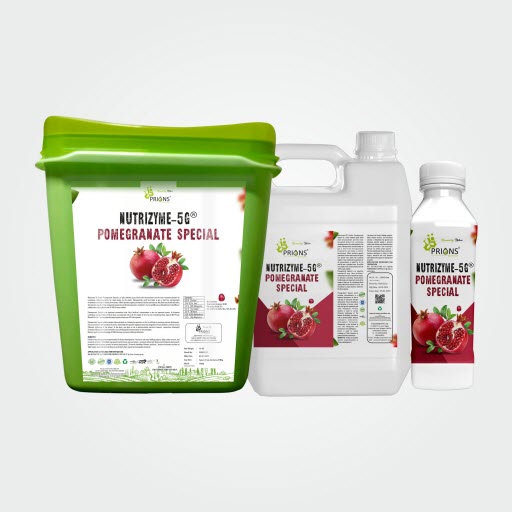As the global focus shifts towards sustainable agriculture, the need for environmentally friendly fertilization methods for fruit crops like apples and pomegranates has never been more pressing. Sustainable fertilization practices not only ensure the health of the crop but also protect the ecosystem, conserve water, and reduce chemical runoff. This article explores the best sustainable fertilization strategies that can be employed to nurture these popular fruit crops while maintaining the balance of nature.
Understanding Sustainable Fertilization
Sustainable fertilization refers to the use of fertilization methods that support crop growth without depleting the soil's nutrients or harming the environment. This involves the selection of appropriate fertilizers, precise application timings, and the right application methods to enhance soil health and plant productivity sustainably.
Why Focus on Apples and Pomegranates?
Apples and pomegranates are among the most widely cultivated fruit crops globally. Their nutritional benefits and economic value make them significant to both consumers and farmers. However, these crops require specific nutrient management strategies to optimize yield and maintain long-term soil health.
Soil Health and Nutrient Management
Healthy soil is the foundation of any successful farming practice. For both apples and pomegranates, it's essential to conduct soil tests to determine the existing nutrient levels and pH balance. Based on the results, farmers can adopt integrated soil fertility management practices that might include:
- Organic Matter Addition: Incorporating compost or green manure can improve soil structure, enhance microbial activity, and increase water retention.
- Cover Crops: Planting cover crops like legumes can fix atmospheric nitrogen in the soil and prevent erosion.
- Reduced Tillage: Limiting tillage helps maintain soil structure and reduces erosion, which is crucial for maintaining soil health.
Choosing the Right Fertilizers
Selecting the correct type of fertilizer is pivotal. Organic fertilizers, such as manure or composted plant material, release nutrients slowly and reduce the risk of leaching. On the other hand, inorganic fertilizers, when used appropriately, can provide specific nutrients required at different growth stages.
Precision Application Techniques
Precision agriculture technologies, such as drip irrigation and fertigation systems, allow the direct application of nutrients to the root zones of plants. This minimizes wastage and environmental runoff, making it an eco-friendly choice for farmers. For both apples and pomegranates, using the right fertilizer is essential for maximizing yield and quality. By implementing precise fertilization practices, farmers can ensure that their crops receive the nutrients they need at optimal times throughout the growing season, supporting key growth stages such as flowering and fruit development. With the use of advanced techniques like drip irrigation and fertigation, Apple and Pomegranates Plant Fertilizer can be efficiently delivered to the root systems, promoting healthy growth and abundant harvests.

Water Management
Efficient water use complements sustainable fertilization practices. Techniques like drip irrigation not only conserve water but also ensure that fertilizers are delivered effectively to the plant roots, reducing wastage and environmental impact.
Pest and Disease Management
Integrated Pest Management (IPM) strategies can significantly reduce the need for chemical inputs by using biological controls, mechanical methods, and selective chemical use only when necessary. Healthy plants are less likely to succumb to diseases and pests, which reduces the need for corrective fertilization and pesticide use.
Monitoring and Adjusting Practices
Ongoing monitoring of crop health and soil conditions helps in adjusting fertilization strategies as needed. This adaptive management approach ensures that crops receive the nutrients they need without excess that could harm the environment.
Conclusion
Adopting sustainable fertilization strategies for fruit crops like apples and pomegranates not only supports environmental conservation but also enhances the economic viability of fruit farming. By focusing on soil health, precise nutrient management, and integrated pest control, farmers can ensure high yields of quality fruit while preserving the earth's resources for future generations.
Frequently Asked Questions - Apples and Pomegranates Fertilizer
Sustainable fertilization involves practices that provide crops with the necessary nutrients without causing environmental harm or depleting soil resources.
Both crops are economically significant and widely consumed, making their sustainable cultivation crucial for both economic and environmental reasons.
While organic fertilizers are preferable for sustainable practices, some crops might require specific nutrients at certain stages that only inorganic fertilizers can provide promptly.
IPM is an approach to pest control that uses a variety of techniques designed to minimize environmental impact and chemical use.
Precision agriculture involves the use of technologies that ensure fertilizers are applied efficiently and directly to the plant's root zone, reducing waste and environmental impact.
